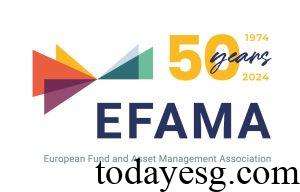Overview
As the most common asset class in ESG investment, ESG securities are concerned by regulatory agencies, listed companies, investors and other stakeholder groups. Whether it is listed company equity or private equity, esg securities in better than other assets in terms of ESG information disclosure, shareholder engagement, and investment decisions.
Numerous studies have shown that a company’s ESG performance is positively correlated with its stock price. An essential purpose of implementing ESG investment is to reduce risks and maintain asset value. Analysis and investment in ESG securities will be more popular in the future.
ESG Securities Investment
ESG securities investment refers to incorporating ESG factors into the investment process, and the most common method is ESG integration, which considers environmental, social, and corporate governance in the investment process.
In addition to ESG integration, common ESG securities investment methods include positive screening, negative screening, thematic investment, active management, etc. Different methods depend on investors’ investment goals, investment periods, and their unique risk preferences.
ESG Securities Disclosure
ESG securities disclosure is at the forefront of sustainable information disclosure development, and global jurisdictions are developing regulations for sustainable information disclosure of listed companies, which are likely to shift from voluntary disclosure to mandatory disclosure.
In addition to information disclosure in the secondary market, some regulators have begun to require issuers in the primary market to disclose sustainable information before listing on the market.

European Fund and Asset Management Association Releases Sustainable Equity Fund Report
EFAMA releases a report on sustainable equity fund, aimed at summarizing the development trends of sustainable equity funds in Europe

Introduction to CFA Institute’s ESG Integration Method in Investment Analysis
This article introduces the ESG integration method in investment analysis released by the CFA Institute

LGT Releases ESG Report on Global Alternative Investment
ESG Report on Global Alternative Investment LGT, Europe’s largest alternative investment asset management company, released a ESG report on global alternative investment. LGT interviewed more

ESMA Releases Sustainability Disclosure Requirements in Prospectuses
The European Securities and Markets Authority issued the sustainability disclosure requirements in prospectuses

GASLA Releases Framework for ESG and Securities Lending
ESG and Securities Lending Framework The Global Alliance of Securities Lending Associations (GASLA) releases the Global Framework for ESG and Securities Lending (GFESL), aiming to
